Submitted by WA Contents
Valentino Gareri Atelier designs 3D-printed Sunflower community village
Australia Architecture News - Jun 28, 2021 - 16:53 9419 views
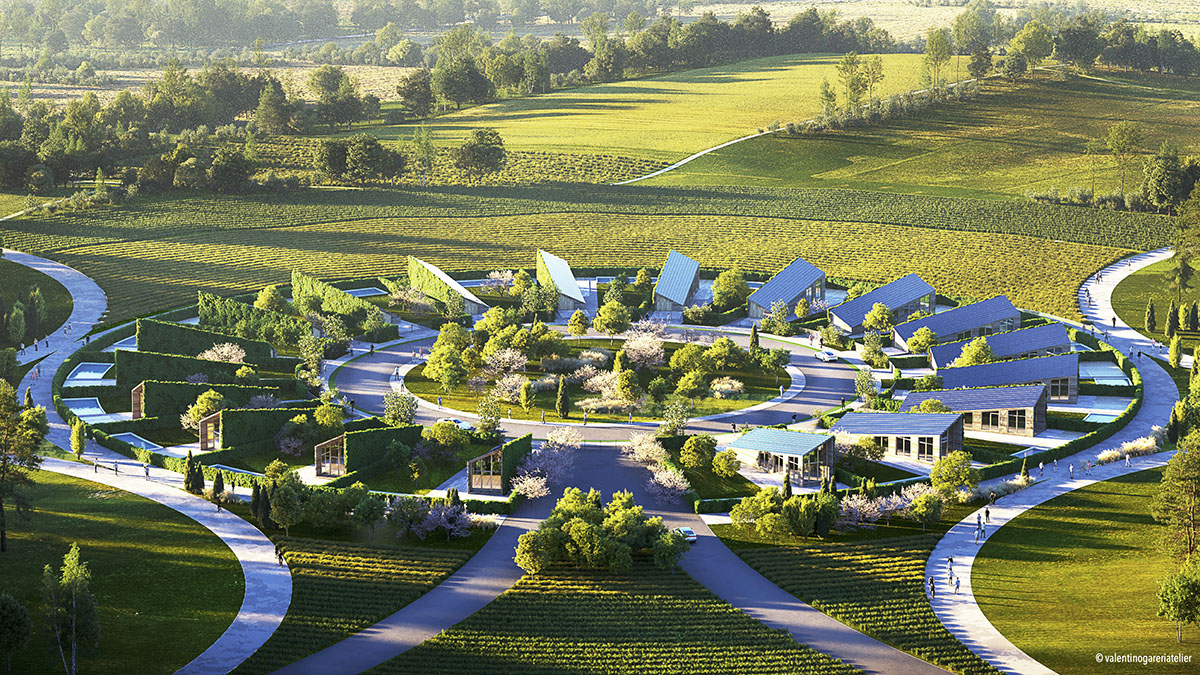
Valentino Gareri Atelier has revealed design for a new 3D-printed residential village which will comprise 19 homes designed as "a new model of sustainable community village", envisioned for low density and rural areas.
Called Sunflower Village, the project is developed with technology futurist & wellness consultant Steve Lastro of 6Sides and global wellness real estate and technology leaders Delos to propose more humanistic, sociological approach to residential technology & community living.

According to the team, the project emerged in response to the amount of people who wanted to escape from high-dense urban centers into small or remote space during the pandemic. The pandemic also encouraged a new ways of working, which has largely increased working-from-home friendly policies.
"The exodus from big cites to small towns and rural areas highlights the necessity of re-thinking about the requalification of these areas and defining a new model of city for the post-pandemic future," said Valentino Gareri Atelier.
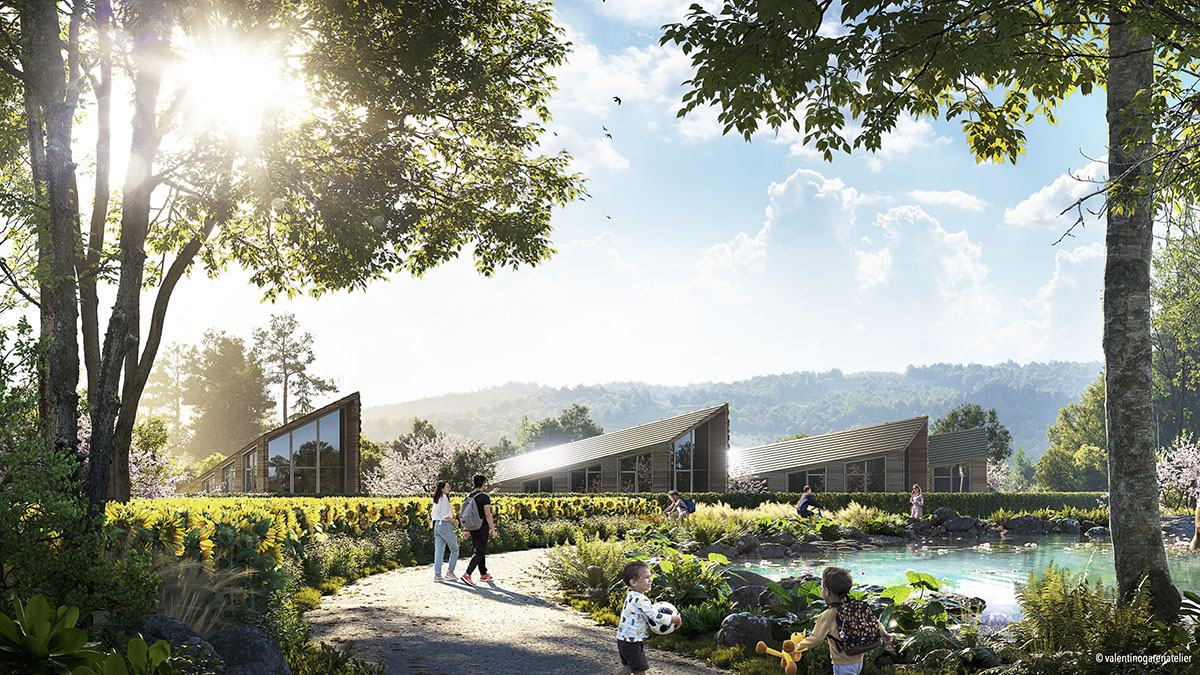
For a general layout, the architects take cues from a sunflower, the arrangement of the houses ‘follows’ the sun circle, where the lots and houses are radially distributed around a central communal area. Photovoltaic roofs are shaped and angled in order to receive clean energy from the sun, as a sunflower does in nature every day.
The 19 homes are designed as singular-story houses that are built by using 3d-concrete-printing technology, while the adopted construction process naturally shapes the final urban form.

"History tells us that new materials and construction techniques had always influenced the forms of the buildings. Each of the most significant architectural forms has been aided by the discovery of new construction method," added Valentino Gareri Atelier.
"From stone and timber structure to the adoption of bricks and the arch-vaulting system, or the introduction of reinforced concrete structure that made possible to create higher and more transparent buildings." "Similarly, the 3D printing technology will give form to the city of the future," the firm added.
The construction site is placed in the center to allow the concrete-printer machine to move through extendable and retractable binaries. For this reason, all houses will be printed in sequence by rotating in the central site area thanks to a temporary placed turning-table.
As Valentino Gareri Atelier highlights, "this represents a more sustainable construction process compared to a traditional one, as less soil is utilized during the working phase."
Every single house is designed to be energy self-efficient. The building shape naturally promotes the sun energy collection thanks to photovoltaic frameless tiles that clad the angled roofs.
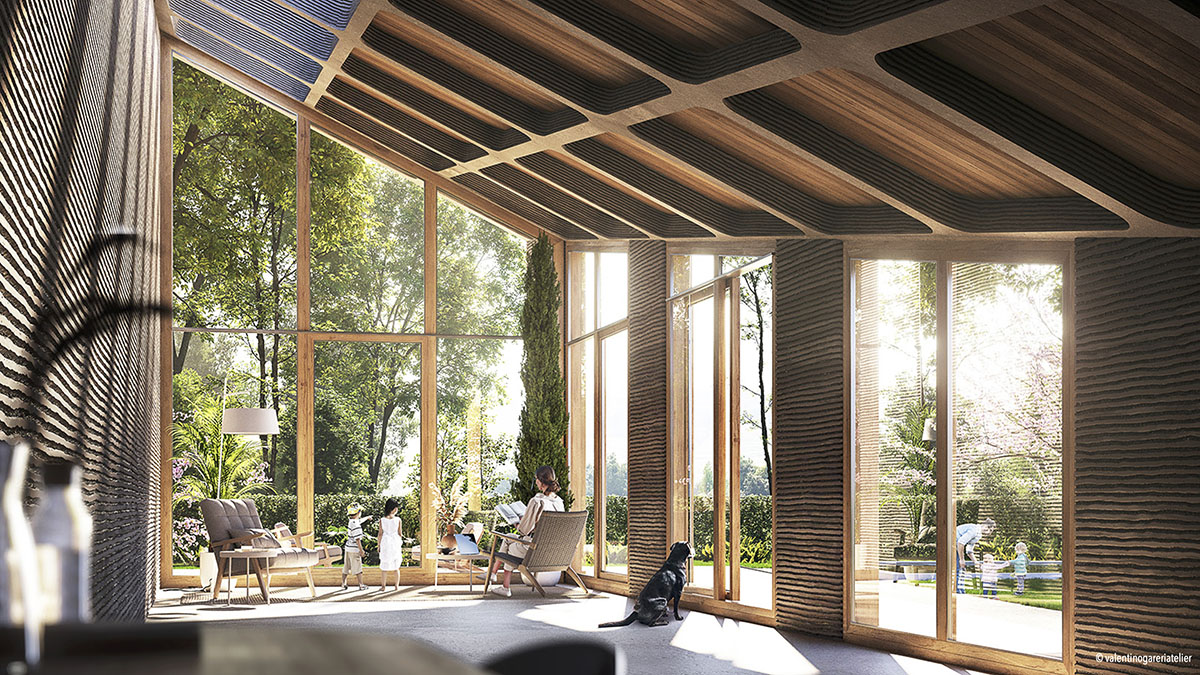
The roofs, like a sunflower, are angled to ‘follow’ and catch the most efficient amount of solar radiation, according to the site latitude. The clean energy is collected in batteries and utilized for the floor-heating system, for air-conditioning, and for electric cars alimentation.
Moreover, the roof inclination, promotes the rain water collection, aimed to be used for toilets and irrigation, into a water tank located in the service room. Here the height of the building is reduced to the minimum necessary, saving material to be utilized in the opposite site of the building, where the height is increased to maximize the view towards the countryside.
PV panels are allocated only on the roofs which have the best exposure to the sun, the energy accumulated is shared with the whole village, and the facades are treated in order to achieve the best performance according to the solar orientation.
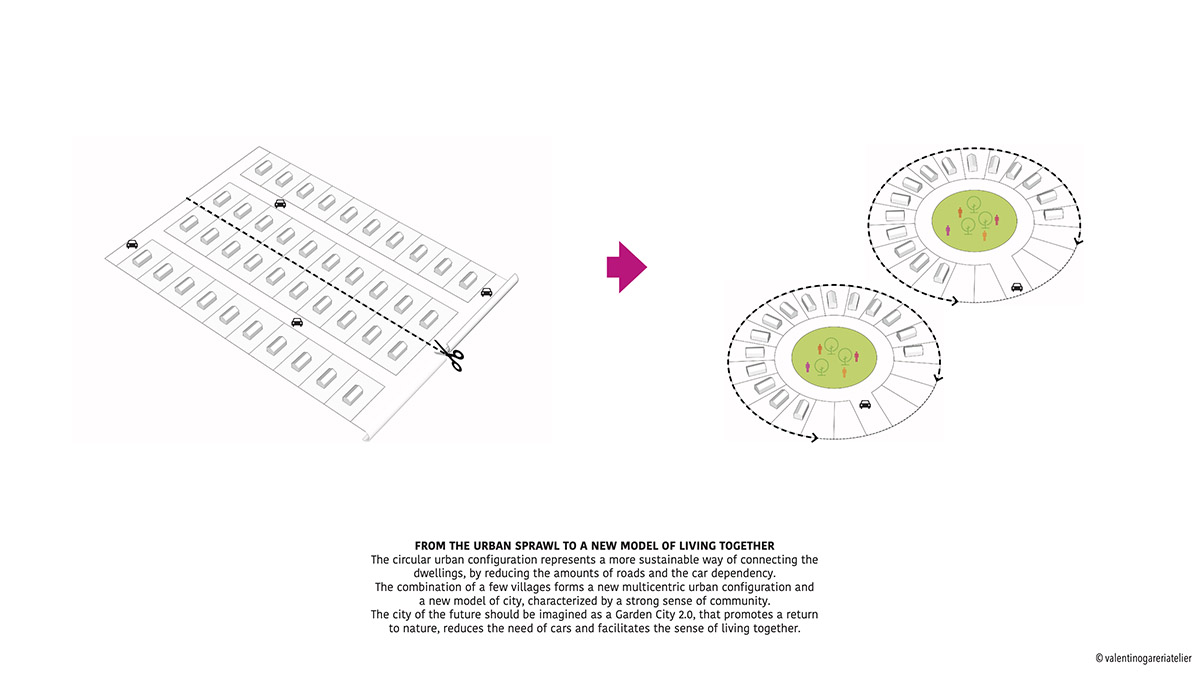
Urban diagram
The generated house geometry promotes and increases the "chimney effect" reducing the need for air-conditioning energy thanks to the natural ventilation.
The energy self-sufficient houses, immerse and completely open to nature, are designed as sustainable ‘machines’ where the final shape is the result of scientific criteria that have the aim to save or produce energy.
With wellness to be at the forefront of Sunflower Village, each home is fitted with DARWIN Home Wellness Intelligence by Delos, "the world’s first holistic in-home wellness platform that is designed to passively enhance human health and well-being through air purification, water filtration and lighting that mimics natural daylight."
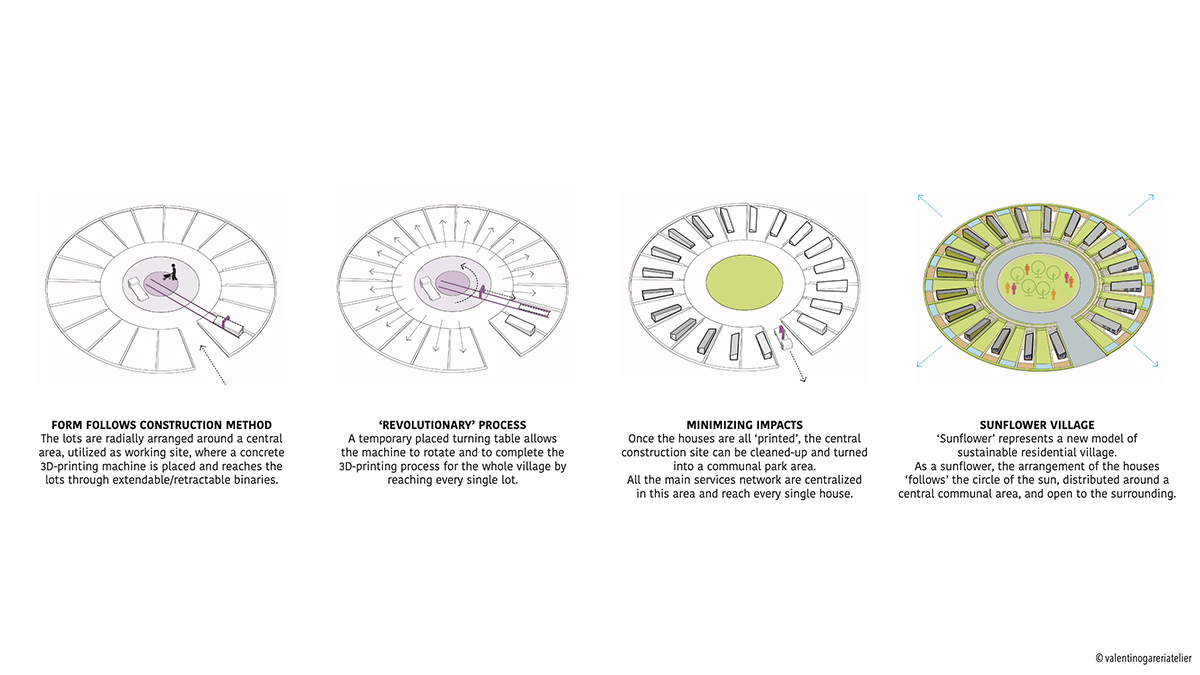
Concept diagram
The reason of a circular urban configuration is also provide a more sustainable way of connecting the dwellings, by reducing the amounts of necessary roads and the dependency from cars.
The combination of more villages forms a new multi-centric urban configuration and a new model of city of the future, characterized by a strong sense of community.
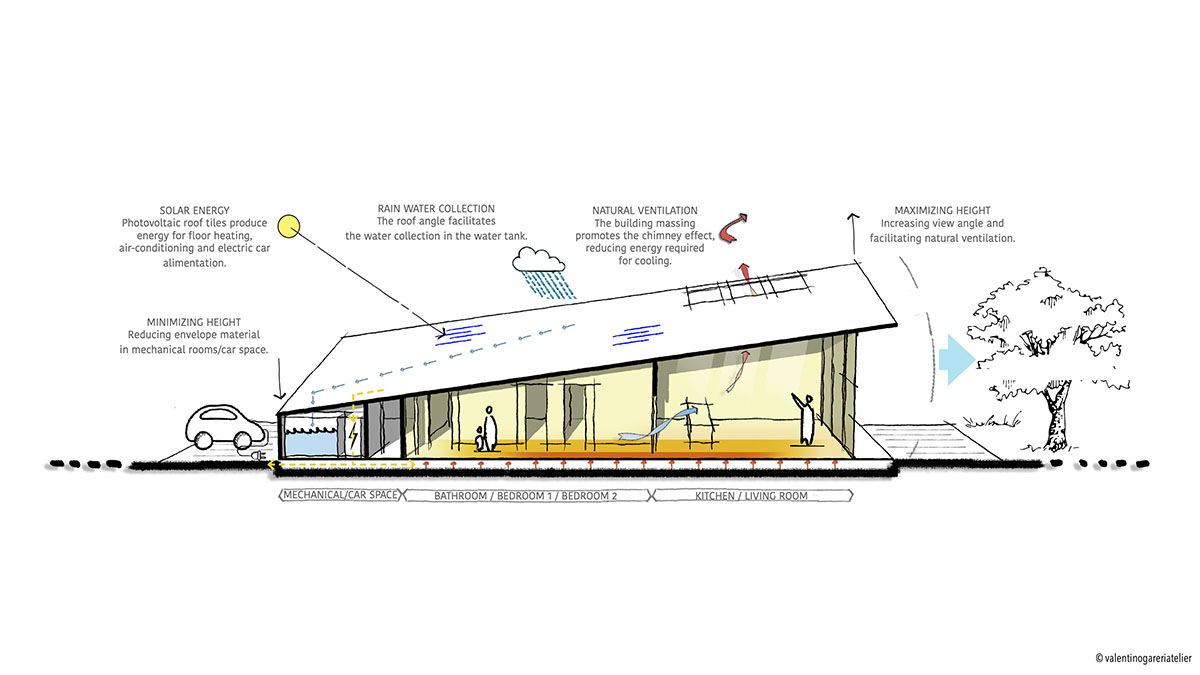
Sustainability diagram
The city of the future should be seen as a new Garden City 2.0, that promotes a return to nature, limits the need of cars and facilitates the sense of living together.
An aggregation of a few ‘Sunflowers’ can create a Small Town where at the centre of each circle can be placed a public function such as schools, kindergartens and civic centers.
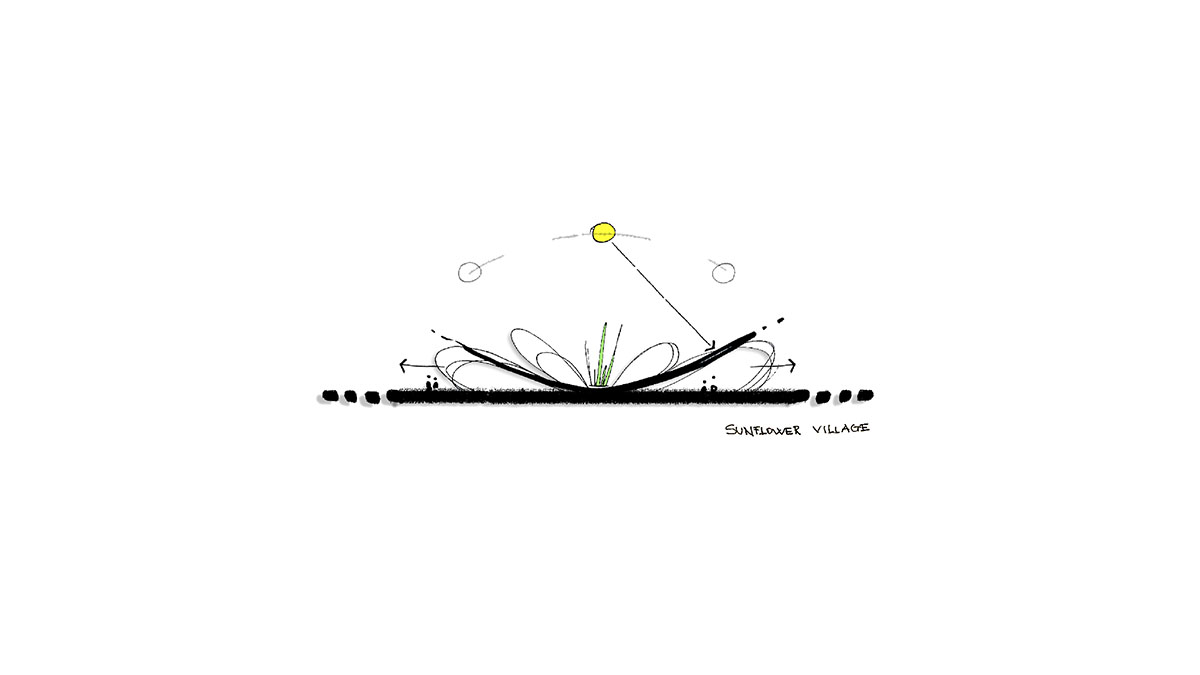
Concept sketch
"Architecture has the power to create places that don’t exist yet, but in our dreams. 'Sunflower’ is the model of the city we dream for tomorrow," said Valentino Gareri.
Project facts
Design: Valentino Gareri Atelier
Technology futurist & wellness consultant: 6Sides
Global wellness real estate and technology leaders: Delos
Renderings © Denis Guchev
> via Valentino Gareri Atelier
